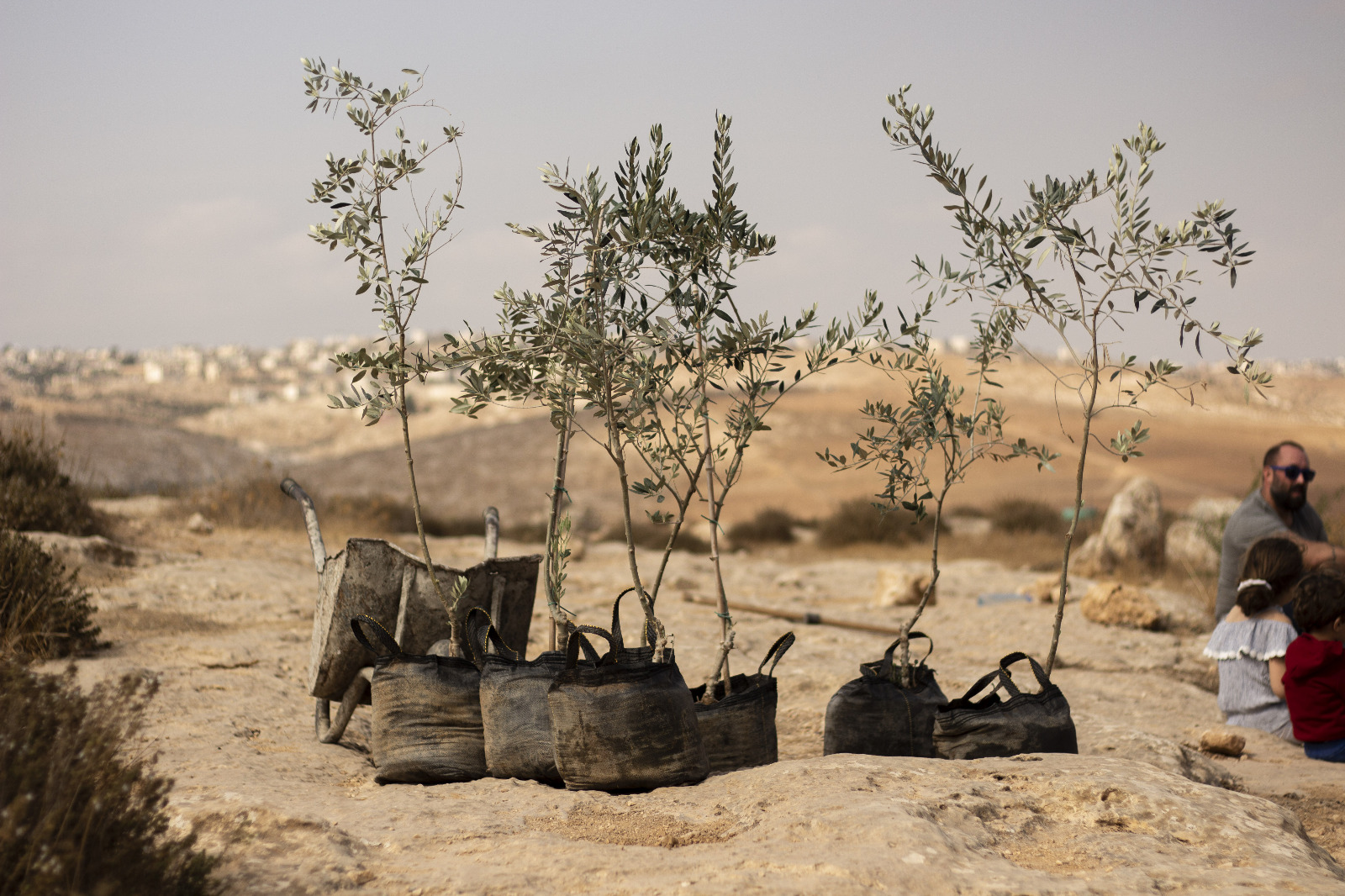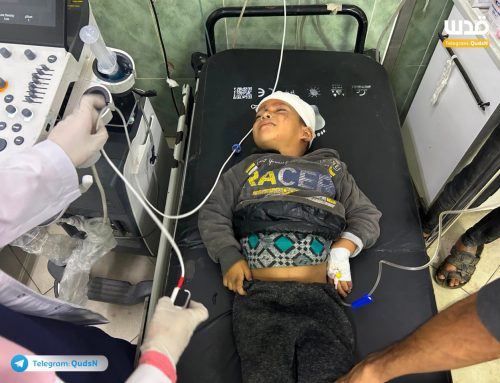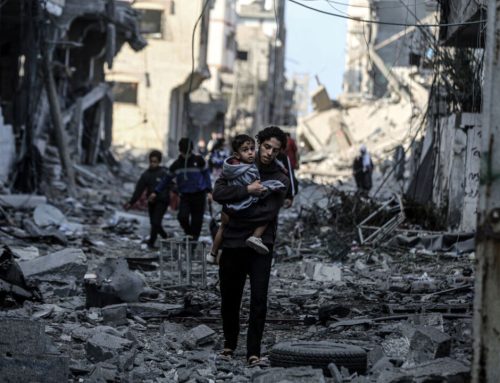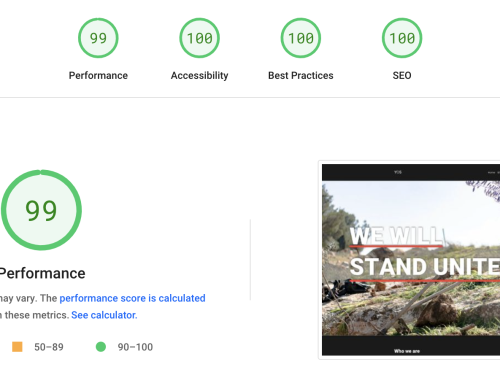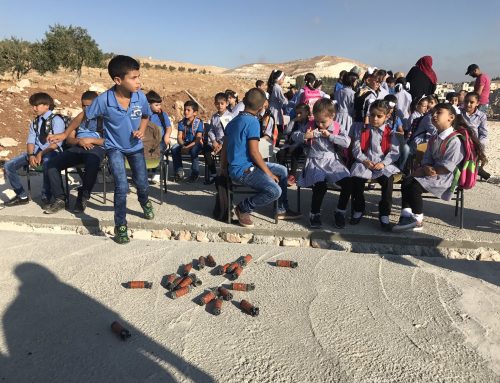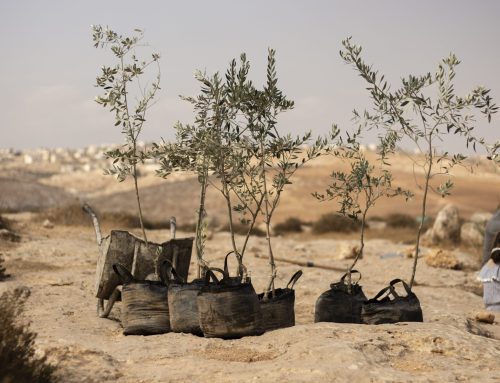Youth of Sumud, GSC start work on settlement buffer zone
Continued physical presence key in nonviolent resistance
Armed with about a dozen olive trees, a wheelbarrow, and some buckets, pickaxes, and hoes, GSC members and local Youth of Sumud organizers from the village of Atuwani in the South Hebron Hills set out yesterday to resist settler-colonialism through farming.
As we have seen over these last months—and as we see every year—Israeli settlers across the West Bank have made it their mission to destroy Palestinian olive trees through many different tactics, from cutting and burning to drowning them with sewage water. These are not random acts of aggression, but targeted violence against one of the strongest aspects of the Palestinian economy—the olive harvest and the creation and sale of olive oil. As with all settler-colonial regimes, Israeli settlers work to destroy the indigenous economy in order to usurp it entirely, forcing Palestinians to abandon their lands or sell them out of financial distress, or at least become dependent on the Israeli economy.
It is clear that in order to stay on their lands and continue to participate in their own economy, Palestinians need our support. Staying on land also means working the land and making the Palestinian presence on it clear, in order to prevent settler land grabs and attempts to confiscate by the Israeli military.
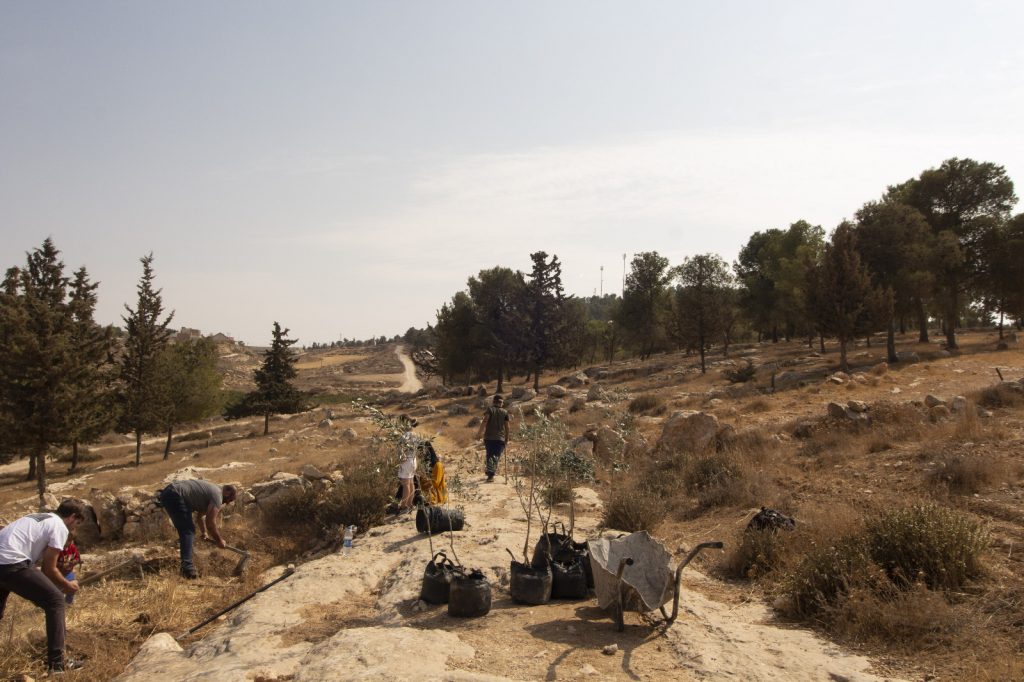
Youth of Sumud and Good Shepherd Collective volunteers plant olive trees, creating a buffer zone between the illegal settlement of Ma’on and Atuwani.
After a few months of fundraising to purchase and plant young olive trees in vulnerable Palestinian spaces, GSC partnered with Youth of Sumud to place the first set of olive trees at a site in Atuwani, located right on the border between the little village, the settlement of Ma’on, and its neighboring outpost, Havat Ma’on.
Atuwani is a small hamlet in the South Hebron Hills located off of Road 317. It is a short distance from the neighboring villages of al Tuba and al Mufagarah. Beside the village—built on land belonging to the village and its residents—is the sprawling Israeli settlement Ma’on, with its European-style homes and cherry plantation, and the neighboring outpost of Havat Ma’on built atop Tel Atuwani (Atuwani hill). For many years Atuwani has been and continues to be subjected to settler attacks, land confiscations, and demolition orders. Today, the village is still threatened by military incursions and threats against new construction.
The violence of the settlers surrounding Atuwani village has reached such a point that since 2004, Palestinian children, traveling a short distance from the nearby villages to get to the school in Atuwani, have had to be accompanied by international volunteers and Israeli military in order to take the shortest and most direct path to school—about twenty-five minutes long. Before these accompaniments were a series of attacks against the children by settler groups living nearby, forcing the children to walk two hour long, indirect paths to school that circumvented the illegal Israeli settlements.
While we worked, the children heading home from school waited almost an hour in between Atuwani and the two Israeli settler spaces for their military accompaniment to arrive. Youth of Sumud activists, familiar with the practice, informed us that the military is almost always late to accompany the children, and occasionally does not arrive at all, leaving students to fend for themselves.
The land in which we planted the young olive trees yesterday sits just beside the dirt road separating Atuwani from Ma’on and Havat Ma’on. For many years, settlers have come to cut down and attempt to destroy the many olive trees which the community of Atuwani plants in this land, situated on a large and hilly field. The evidence is in the trees that remain to grow back, short and squat and without olives, but still there. This violence by settlers in the neighboring outposts is not only economic—it is an attempt to erase the Palestinian presence and drive the community out of these lands, clearing it for settlement expansion.
Together with the organizers from Atuwani, GSC planted our eleven olive trees in a row. Hafez Huraini, who led us in the process, estimated that the trees—about three or four years old today—might bear olives in a few years, as long as they are left to grow and thrive where they have been planted. These olive trees, donated by those who understand the importance of indigenous communities and spaces, are more than olive trees, just as the act of planting them is more than what it seems. Together, we are doing the things we must in order to build the future we want—working to secure Palestinian spaces and economy with our partners, and investing into these communities in ways that support their needs.
With your support, we will continue to plant olive trees in communities vulnerable to settler confiscation and violence. If you would like to donate to help us purchase more olive trees, you can do so here.
Stay up to date
As we move forward with developing principled programs of resistance and building a broad-based, diverse network of individuals and groups willing to challenge the policies and law that perpetuate the oppression and violence, your material support is essential.
Until the next email, you can like our page on Facebook and make sure that you follow it–and set it to “see first,” so you can stay on top of our updates as we post them. Next, you can find us on Twitter and Instagram. Lastly, take a moment and urge your friends to visit our website, find out more about us and send them a link to our email sign up list.
We need your solidarity
As we continue with this work, we are asking you to join our current “Drive for $5” donation campaign. We are building a model of grassroots mobilization that rejects the restrictive and oppressive models of neoliberal foundations and nation-state aid. We are asking individuals to invest $5 a month to continue this work. You can do that by clicking this link here. If you want to make a larger donation there are other options. If you are a US citizen and want to make a tax-deductible contribution, you can do so through the Alliance for Global Justice by clicking here. If you are in the UK, you can use our partners the British Shalom-Salaam Trust and use GiftAid.
Sign this urgent petition below



